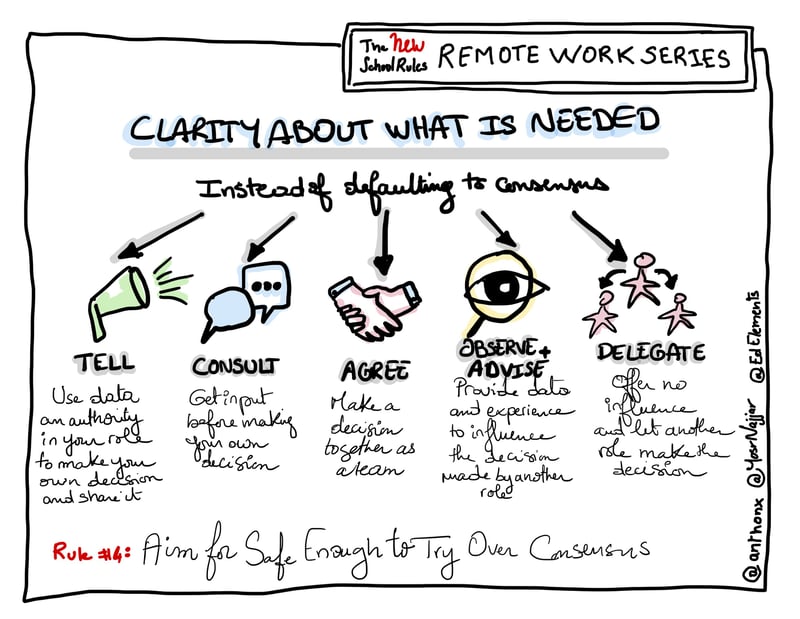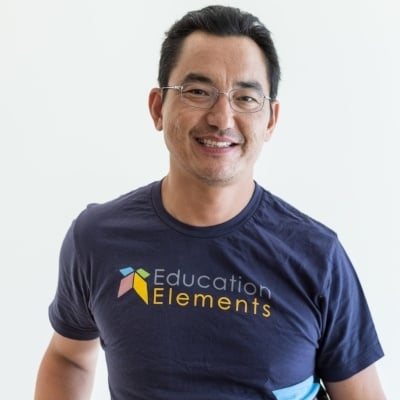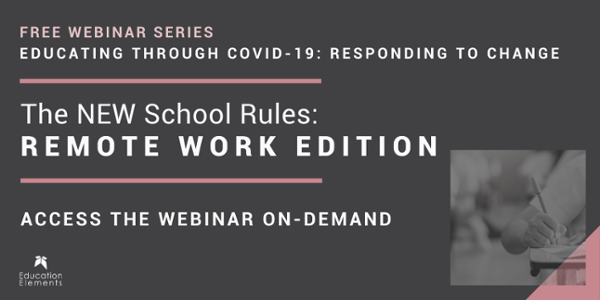Many leaders are making decisions that impact their entire organization in response to the COVID-19 outbreak. As with many decisions with far-reaching implications, building consensus may be an obvious instinct for many. However, in a time with so much uncertainty, there can be many drawbacks to aiming for consensus – chief among them being too much input, causing the process to stagnate. Remote work provides the opportunity for leaders to try things differently and to avoid some of the traps that come along with integrating the input of many team members.
I want to take this opportunity to acknowledge that consensus building is probably harder in a remote work environment. This may be due to some team members feeling more comfortable at home, or less engaged because they prefer in-person communication or collaboration. Distractions at home also may lead to some colleagues not contributing as much as expected.
Missed the previous post in the Remote Work Series?
Check out Part 4: Define the Work Before the People
One important approach is to reduce bias to avoid people waiting to hear what others share before they choose to speak up. Leaders can do this by using visual cues during video calls. For example, a thumbs up or a fist to express their opinion on an idea. This can help prevent multiple people from responding to a question at the same time, as well as maximizing the responses you receive.
In addition to reducing bias, it’s important to have a set of approaches for how you get your team to make decisions. Here are five ways you can try to move away from consensus building.

-
Tell: I have made a decision and I am passing it on to you to complete this work
-
Consult: I’m seeking advice from the group. But ultimately, I need to make the decision.
-
Agree: This is like consensus. It’s hard, but sometimes you need consensus. If I decide to go with this approach, I cannot forget about reducing bias.
-
Observe and advise: It’s not my decision, so I’m listening carefully and sharing my observations. This approach is great for sharing my expertise to help inform your decision.
-
Delegate: I will not make this decision. Instead, I will pass it on to someone who will make this decision autonomously.
The point of these tips is so you can make decisions faster, try new things, get data back, and learn from the experience. That’s why I’m pushing you to focus not on consensus building, but to aim for safe enough to try. Check out my video "Aim For Safe Enough to Try, Over Consensus" as part of the Remote Work series.
Subscribe to my YouTube channel to check out the rest of the series, and for more videos about learning organizations, team habits, and leadership.
Looking for the next post in the Remote Work Series?
Check out: Harness the Flow, Let Information Go





